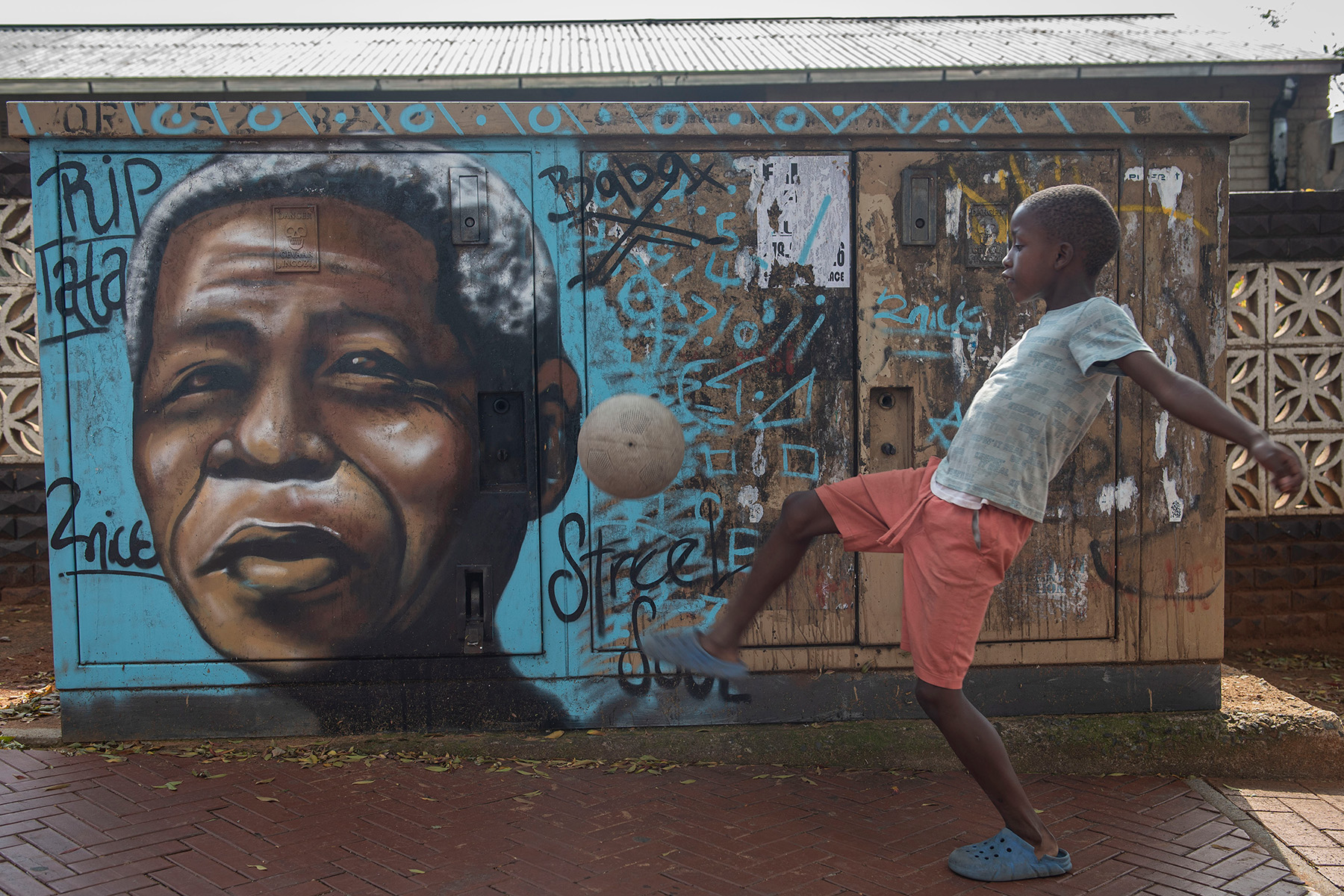I attended the funeral of Peter Magubane, the legendary South African photojournalist. He had lived to the age of ninety-one, beating out an apartheid state determined to kill him because of his work. He was part of my mother’s extended family.
Growing up, I called him Mkhulu, meaning grandfather. His was an official provincial funeral, attended by high-ranking dignitaries including President Cyril Ramaphosa, who read the eulogy. Before the service, I’d had an idea of the dangerous conditions Mkhulu Peter operated under, but I was still shocked to learn the true extent of the violence the state had meted out against him.

Police beat him many times, broke his nose, and at one point, while he was detained, his house was destroyed in a fire. Starting in 1969, he was locked up for 586 days of solitary confinement. After his release, he was banned from taking photographs for five years, an order with which he refused to comply.
During the funeral, these experiences were rightly listed as proof of his exceptional character, heroism, and commitment to fighting apartheid. Sitting in the congregation, I kept thinking that no matter how brave and honourable Mkhulu Peter was, he had to have come back to his family a very different person after his solitary confinement. How much healing and help was he able to access to process his traumatic experiences? But, that day, Ramaphosa, who is also president of the African National Congress—the liberation movement that became Nelson Mande.
















